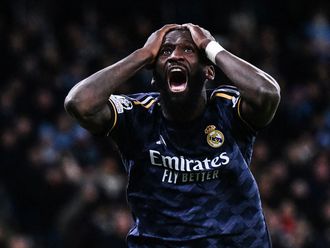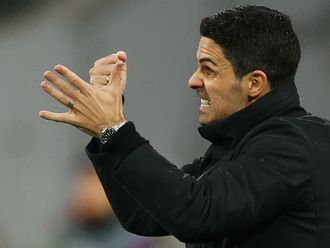St Petersburg: From a World Cup draw that looks like a bright, imaginative, big-hearted child might have drawn it, maybe even in crayon, one of the following four teams will appear a week from Sunday in a rare and motley final: Croatia, Russia, Sweden or England.
This reality stands cemented already even ahead of the quarter-finals that begin on Friday, with only two previous final berths sprinkled among that whole foursome up there. That will mark a departure from the penchant of the World Cup final to spotlight titans, with Spain in 2010 the only finalist since 1966 without multiple finals all-time, and with nobody deeming Spain an upstart. Twenty-nine of the previous 40 berths have gone to Germany (eight), Brazil (seven), Italy (six), Argentina (five) or the Netherlands (three).
Somehow, only one of those five stands among the final eight, with that one (Brazil) on the tougher side of the draw bracket alongside Belgium’s golden generation, France’s soaring talent and Uruguay’s all-pitch competence. That leaves ample room already to note things such as that, when two teams walk out for the final in Moscow, Croatia could forge an astounding achievement for a country only 27 years old and with 4.2 million souls, or England …
In one of those statistics that seems impossible until its plausibility rises with careful viewing, England, the home to the world’s most popular sports league, has reached only one World Cup semi-final in the 52 years since 1966, the year they won the World Cup at Wembley Stadium as hosts.
If they can beat Sweden on Saturday, this eccentric World Cup will bring them a first semi-final since 1990.
England have played only one of the 20 previous World Cup finals, their 4-2 win over West Germany in 1966. Sweden have played one also, in 1958, at home, against Brazil and a 17-year-old Pele, who scored twice that day and who by now is 77. Croatia and Russia have played none, yet the triumvirate of England, Sweden and Croatia did thrive in a 1990s corridor. England had 1990. Sweden finished third in 1994 in the United States, going out 1-0 to Brazil on Romario’s 80th-minute goal.
And Croatia, then only seven years old as a country, placed third in France in 1998, coursing through Romania and Germany before losing a semi-final to eventual winners France.
Russia, with their world ranking of No. 70, are stashed beneath Cape Verde, Finland, Albania, Jamaica and Burkina Faso, to name a smattering. Russia secured a spot here very long before anyone else, on December 2, 2010, when 22 members of Fifa gave Russia nine votes on the first round and 13 on the second so that it outdistanced a Spain-Portugal bid, a Netherlands-Belgium bid and an England bid.
Even though it emerged from by far the easiest group and got thrashed in there by Uruguay, and even though it has benefited both from Mohammad Salah’s injury and Spain’s odd fecklessness, further passage wouldn’t feel so unprecedented. Location matters. South Korea made an unexpected run to the semi-finals as a co-host in 2002, and the United States reached their first round of 16 in 60 years in 1994.
This has been a World Cup of “Ross-i-ya” chants even during matches not involving Russia, and often followed by brief jeers from jarred, miffed fans of those actually playing.
“There are many good teams, and a lot is at stake,” Sweden’s Emil Forsberg said. “It can be nerves,” which help explain the unexpected. “It can be anything.”












